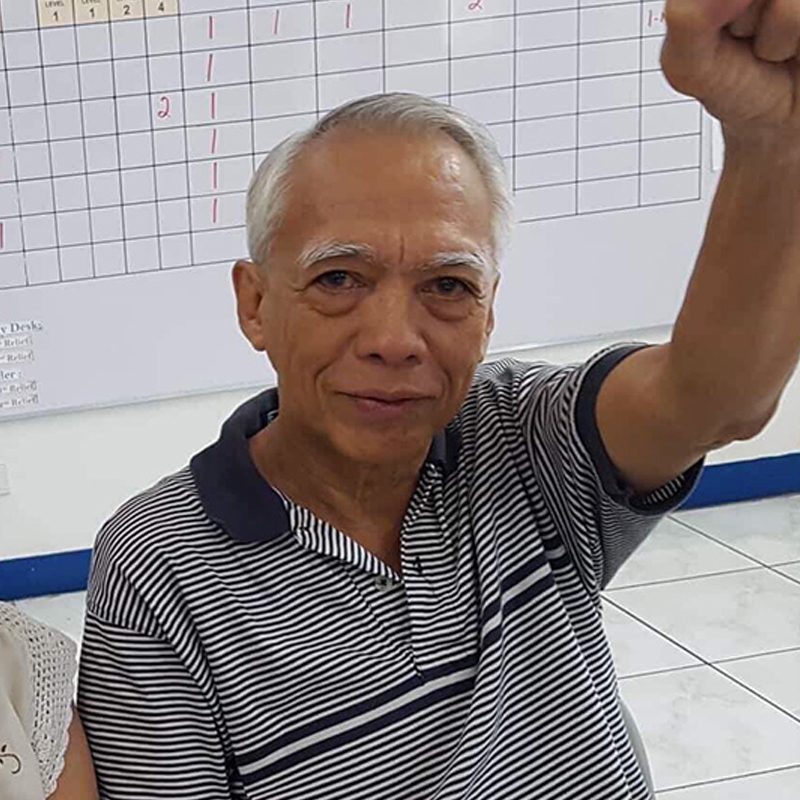SUMMARY
This is AI generated summarization, which may have errors. For context, always refer to the full article.

Of the 19 people designated as terrorists by the Philippine government based on the contentious anti-terror law, one is actually a petitioner in the ongoing Supreme Court (SC) case where legal standing has been a major issue.
Rey Claro Casambre, among the peace consultants labelled by the council, is a petitioner on record in one of the 37 petitions filed challenging the constitutionality of the feared law.
“With Casambre designated and injured by the anti-terror council, the terror law petitions now have a surer footing in court with his established legal standing to file suit,” said the Public Interest Law Center, Casambre’s lawyer.
A major contention in the ongoing oral arguments are the petitioners’ legal standing because up to this point, none of them has been prosecuted under the new law. This point raised questions on the ripeness of their case at a time that the SC is getting more strict with this procedural aspect.
Petitioners had argued that the mere threat to free speech allows a facial challenge, or a challenge without having to directly suffer from the contested law.
Threat of prosecution
Government lawyers had insisted that the only effect of being designated terrorists would be the freezing of their assets.
In a statement Thursday, May 13, the Armed Forces of the Philippines said the designation of these people as terrorists enabled it to “closely work together with government law enforcement agencies and focusing our resources to bring the mentioned personalities to justice.”
“Casambre has correctly stated that he faces credible threat of prosecution under the new terror law,” said the PILC.
PILC said it intended to file a manifestation to tell the Supreme Court of this new development before the resumption – and possibly last day – of oral arguments on Monday, May 17.
The Court’s amicus curiae, or tapped expert, retired justice Francis Jardeleza had recommended to dismiss the petition for lack of legal standing.
No connection to CPP central committee
Without giving details of its evidence, the anti-terror council said in its resolution that it had verified information that the 19 were members of the Communist Party of the Philippines or CPP’s central committee.
Casambre, and fellow peace consultants Rafael Baylosis, Vicente Ladlad, and Adelberto Silva – also designated – denied that they were connected to the central committee.
“Not only had they shown long track records in the legal democratic movement, the court aptly dropped their names from the proscription petition under the Human Security Act because there was no evidence linking them to terrorist organizations or activities,” said the PILC.
PILC was referring to a proscription case filed by the Department of Justice (DOJ) in 2018 to declare as terrorists more than 600 people it accused to be CPP members.
The DOJ eventually trimmed that list to 8. Later, the Manila Regional Trial Court further cut it down to 2, saying that CPP founding chairman Joma Sison and Antonio Cabanatan were the only 2 people with “unassailable links” to the CPP.
“How can the anti-terror council, three years hence, claim to have verified and validated information against these peace consultants when it has already been proven in court that there is none?” said the PILC.
Justice Undersecretary Adrian Sugay told reporters that the designation first passed through a technical working group (TWG), before it was elevated to the council itself for adoption. The Department of Justice (DOJ) is a member of the council. This entire process was done in secret.
‘Very unfair’
Of the peace consultants marked by the government, Baylosis is out free after he was cleared in 2019 of illegal possession of firearms and explosives. He is also out on bail for a separate 12-year-old case involving an alleged mass grave in Leyte, related to what was described as purge of communists.
Baylosis was among the several activists granted bail by the Supreme Court in that case.
“I continue and faithfully attend my remaining court trial until lately in a Manila RTC court hearing. To top it all, I remain working for the resumption of the GRP-NDFP Peace Talks as one of the NDFP consultants,” said Baylosis in a statement on Thursday.
“It is very unfair, unfounded and malicious that I be included in the so-called terrorist list of the ATC,” Baylosis added.
Ladlad’s wife Fides Lim also called the designation “grossly unfair.”
“My husband is not a terrorist or a criminal. His long record of activism, which includes political imprisonment for standing up for country and people, is an open book,” said Lim.
Ladlad, Silva and Casambre are all in jail for different charges. Lim called on the government to ensure their safety and well-being as Philippine jail conditions deteriorate in a raging pandemic.
PILC said the designation “is a perturbing development after quiet, insistent efforts to reopen talks.”
“With this move by the Philippine government, it closes possibilities for a peaceful resolution of the root cause of the armed conflict,” said the PILC. – Rappler.com
Add a comment
How does this make you feel?





There are no comments yet. Add your comment to start the conversation.